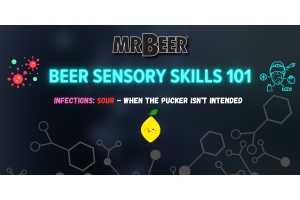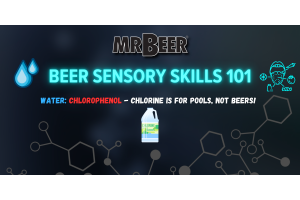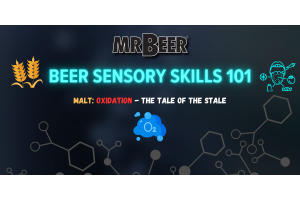Can You Boil Hops in Booster?
Who does not love hops? I know I do! One thing that we have changed with some of our new Recipes is boiling your hops in Booster. Over the 6 years I have been working here I was always told not to do it but never told why. So finally, we decided to try it ourselves.
So, to answer the age-old question, can you boil hops in booster? The answer is YES!!
Okay, so that is pretty basic let’s dive into some details about this.
Let’s first discuss Humulone, and what it is. Humulone is the name for the primary alpha acid present in hops that causes bittering. But humulone must be Isomerized (through heating) to be available in its bitter form, known as isohumulone.
Using a smaller boil volume, more concentrated wart can reduce the amount of bittering potential that are hops might have, this is because a higher gravity wort (meaning a wort with a higher ratio of sugar per volume of liquid) will decrease the rate of isomerization, so basically that means a wort with more water, will be potentially more bitter. BUT hops do need some gravity in order in impart flavor, and not just bitterness.
As we’ve mentioned in a previous blog post, a smaller volume, more concentrated wart can reduce the amount of bittering potential that are hops might have, this is because a higher gravity wort (meaning a wort with a higher ratio of sugar per volume of liquid) will decrease the rate of isomerization, so basically that means a wort with more water, will be potentially more bitter. BUT hops do need some gravity in order in impart flavor, and not just bitterness.
Okay, so wait can you boil hops in water? All though it may seem odd, you can boil hops in water, this is called a “hop tea”. It will cause a large amount of humulone to be excreted from your hops, however it can result in very little flavor.
There are some brewers that stand by the idea that boiling hops in only water produces a grassy and undesirable vegetal flavor, however it is more likely that this is not true, as boiling in water voids the hops of their flavor and brings out only their bitterness which could be perceived differently on an individual pallet.
Now when boiling hops it is always important to make sure that you are boiling your hops in either Booster, LME, or DME. You NEVER, want to boil your HME.
You can think of a can of HME (hopped malt extract) as a concentrated wort, because that’s exactly what it is. The hops in this wort have already gone through their boil process and achieved “high isomerization” therefore boiling them further is unnecessary and could potentially alter the flavor to be undesirable. Also, boiling Malt extract can darken it and if you’re someone that’s picky about the color of your finished beer, this could be problematic. This is where boiling them in booster comes in handy.
Adding booster to your hop boil, allows you to create the ideally balanced environment for your hops to have enough gravity to lend flavor but not so much that their bitterness is lost. Therefore, acting as the great mediator between the two qualities.
Boiling your hops in booster, allows you to use a creative and dynamic hop schedule without changing or marring the flavor of your HME. It gives you far more control over your hops and the flavors that they are imparting.
When using hops, always follow the instructions that come with your Recipe. If you want to experiment and go all mad scientist with some hops, just make sure that you do NOT boil them in your HME.
Cheers, and Happy Brewing!





